Last week, the public agenda in Turkey has been busy with three main topics.
The first topic was the second sessions of the exploratory talks between the Turkish and the Egyptian Delegations, on 7 – 8 September.
Second was the President of the Democratic Republic of Congo Felix Tshisekedi’s official visit to the capital Ankara.
Third was the recent interview and remarks of the Turkish Defense Minister Hulusi Akar given to the journalist Sedat Ergin from Hurriyet News, about the latest situation in regional issues such as Syria, Afghanistan or the S-400 crisis.
Second session of the exploratory talks between Turkish and Egyptian delegations
On Wednesday, Turkey and Egypt have completed a second session in the exploratory consultations by agreeing to continue the talks.
A joint statement by the Turkish and the Egyptian foreign ministries on Wednesday confirmed the two sides’ “desire to make progress in areas under discussion and the need for further steps to facilitate normalization of their relations.”
“The second round of consultations between the delegations headed by Ambassador Sedat Onal, Deputy Minister of Foreign Affairs of the Republic of Turkey, and Ambassador Hamdi Sanad Loza, Deputy Minister of Foreign Affairs of the Arab Republic of Egypt, was held in Ankara” on Tuesday and Wednesday, said the statement.
It also stated that Turkish and Egyptian officials had “addressed bilateral issues as well as a number of regional topics, such as the situation in Libya, Syria, Palestine, and the Eastern Mediterranean.”
With Turkey and Egypt this week continuing talks at the level of deputy foreign ministers with an eye towards normalizing ties, experts said such steps may be on the way, but not anytime soon.
Can Acun, a foreign policy expert at the Ankara-based Foundation for Political, Economic and Social Research (SETA), told that grounds for normalization in bilateral ties could be reached if the sides “meet halfway.”
Saying that both sides have important matters to address, Acun said the two countries are also aware of the cost of the seven-year-long dispute, and so will work hard to reach a resolution.
Acun said time would show the course of talks, adding that both sides desire normalization.
For his part, Ismail Numan Telci, deputy director at the Ankara-based Center for Middle Eastern Studies (ORSAM), told that the talks are expected to deliver positive results.
Telci, a prominent expert in Gulf politics and Egypt, explained: “If the two states reach the point of appointing ambassadors, the foundations for a high-level meeting between foreign ministers can be arranged in the future.”
In fact, the groundwork for such a high-level meeting could even take place during this fall’s UN General Assembly starting next Monday, September 14th, he added.
Echoing Acun’s comments, Telci also stressed that complete trust on both sides has yet to be established, but underlined that such a position could be signaled by mutually appointing ambassadors.
“It is fair to say that there is a will on both sides in this sense,” he added.
On the maritime jurisdiction issue, Telci said: “One of the most important outcome of the Turkey-Egypt talks (could be) an agreement on the delimitation of maritime jurisdiction in the Eastern Mediterranean. However, this issue is a step that may come after the reappointing of ambassadors.”
Pointing to Egypt’s ties with the Greece-Greek Cypriot duo, he said these relations are the most important factor in a possible agreement on maritime jurisdiction.
“This was seen again, especially at the Egypt-Greek Cypriot administration summit on September 4th. These countries recently made an effort to renew their relations more actively,” he said.
The major reason behind such a move is Athens and Greek Cyprus’ “concern about the possibility of Cairo distancing itself from them.”
Telci said the course of relations would become clearer once the political consultations end today.
“If steps towards normalization are taken, it is possible that different approaches to regional issues such as the Eastern Mediterranean, Libya and Syria will be reached and partnerships will be forged to resolve regional crises,” he added.
It carries great importance for regional politics, he said, “Turkey and Egypt, the two most important actors in the region, focus on partnerships and overlapping policies rather than differences.”
In a televised interview, Turkish Foreign Minister Mevlut Cavusoglu said his country was taking “positive steps” to improve relations with Egypt.
“A process has been launched. Necessary concrete steps in line with a road map can be taken in the coming period,” the minister stated.
“We can start negotiations and make this deal. If they make this deal with us, they will gain more areas. But we even have not yet appointed ambassadors,” he said.
“There is no lasting friendship or enmity in international relations,” Cavusoglu said.
The minister also expressed the possibility of agreeing on a maritime deal with Egypt in the eastern Mediterranean, similar to the one struck with the Tripoli government in late 2019, if Cairo also asks for it.
Congolese President’s visit to Erdoğan
The President of the Democratic Republic of Congo (DRC) Felix Tshisekedi visited the Turkish President Erdogan on Tuesday.
During the visit, both Presidents made important remarks about the bilateral relations of these two countries.
His Turkish counterpart Recep Tayyip Erdogan received President Tshisekedi at the presidential palace in Ankara. The visit is the first by a Congolese president.
Their talks focused on bilateral cooperation and relations between Turkey and Africa. According to the Congolese presidency, the two leaders also expressed their common desire to increase trade between the 2 countries with the objective of reaching a volume of 250 million USD in the medium term.
Recep Tayyip Erdogan declared, on this occasion, that they mutually confirmed their willingness to improve cooperation between the two countries, before adding that they will make an intensive effort to raise their economic and trade relations to a dignified level of their friendship, the agreements concluded contributing considerably to the achievement of this objective.
The Turkish President also said at the joint press conference that sincerity, brotherhood and solidarity constitute the essence of relations uniting Turkey and Africa.
“Improving our relations and cooperation with Africa is one of the fundamental principles of our humanitarian and entrepreneurial foreign policy. Sincerity, fraternity and solidarity constitute the essence of our relations with Africa”, said Recep Tayyip Erdogan, in the presence of his Congolese counterpart, who is also President-in-Office of the African Union.
He continued that Turkey attaches great importance to their relations and shares the African vision for a better continent, while hoping that the most lasting and realistic solutions to the continent’s problems will be found by Africans themselves.
President Erdogan further indicated that he discussed with President Felix Tshisekedi the preparations for the 3rd summit of the “Turkey-Africa Partnership” which he intends to hold with the African Union, “a strategic partner”.
Boosting the bilateral trade volume to $250 million is the target, Erdogan said, adding: “The agreements that have just been signed will contribute greatly to achieving this goal.”
According to Turkey’s Foreign Ministry, Turkey’s exports to DR Congo in 2019 totaled nearly $55.9 million and imports $1.47 million, while the total bilateral trade volume in 2019 was $57.25 million.
Erdogan also thanked Tshisekedi for his sincere support in Turkey’s fight against the Fethullah Gülen Terrorist Organization (FETO) – the group behind the 2016-defeated coup in Turkey.
Noting that Tshisekedi is also the chair of the African Union, Erdogan praised the president, saying he made significant contributions to stability and development on the African continent.
“We believe that the most permanent and realistic solutions to the problems of the continent will be found by our African brothers,” he said.
For his part, Tshisekedi said that “cooperation and friendly relations” between the two countries will grow stronger.
He said that during his meeting with Erdogan, they discussed holding a Turkey-Africa summit in Turkey in the second half of November.
Interview of the Turkish Defense Minister with remarks on regional issues
Journalist Sedat Ergin published his interview with the Turkish Defence Minister Hulusi Akar, who made some important remarks regarding many regional and national issues, from Afghanistan to Syria, and from S-400 crisis, to the ongoing refugee crisis.
Regarding the collapse of the Afghan government, Akar said: “We did not expect the Taliban to take over Afghanistan and Kabul in such a short time, or the Afghan army to be dissolved in such a short time… But it is actually a mistake to expect the army that was trained by those who have failed in the war against the Taliban. There is a strong dilemma here. In getting to this point, it is not only the United States to blame, but every member of the International Coalition.”
“When the Taliban saw the collapse of the government, they used a tactic of releasing the Afghan Army soldiers after disarm and survey them. This encouraged some of the Afghan soldiers to surrender, thinking nothing would happen if they were captured.”
Akar also believes that the international media, and especially the Western media “damaged the fighting capabilities of the Afghan army by making the Taliban look very tough and battle-hardened militants”, and added “There was a perception that they would take over the country anyway”.
Akar stated that the cultural differences make an important difference in these kinds of military campaigns, giving the example “Foreign soldiers who arrived 20 years ago in Afghanistan, wore sunglasses and even this caused a problem. People have seen this quite negatively. It was unfamiliar to their culture. But for example when the Turkish Armed Forces went to Afghanistan, they were always perceived differently. The Turkish flag insignia on their shoulder pads always gave a positive reputation. Soldiers from other countries even began to wear the Turkish insignias. This practice was banned at some point, and everyone wore their own flag back again.”
Akar gave another important point in winning such military campaigns, as the overreliance on air superiority, by saying “An important issue we have seen is the Coalition forces have relied on air force too much in Afghanistan, which has negatively affected the fight. The US and the Coalition forces made the same mistake in Iraq, or in Al-Raqqa, Syria. When you solely rely on your air power and strike targets harshly, you cause a large collateral damage, and the civilian life in that settlement is heavily affected. Therefore, the use of heavy air power creates some hostile sentiments towards the invasion force in the local population.”
“For example, we use both of our air power and our ground troops in Iraq. Our action plan in Syria is important in this respect. In one instance, we identified a four-story building that the PKK uses as its headquarters. On the third floor was the so-called PKK headquarters. However, it was reported that a family of 12 residents lived on the fourth floor of the same building. They were using them as human shields, in a sense. We could have hit the building from the air. However, in order not to harm the family, we followed a different course of action, and deployed our ground special forces.”
About the Turkish deployment in Kabul International Airport, Akar made the following comments:
”Our thesis was on not interfering in any active combat missions. We have built facilities and infrastructure, as well as giving humanitarian, administrative and technical support for the operation of the Kabul Airport. That is why we say ‘We can stay here as long as the Afghan people wants it’. However, in the agreement we reached with the United States, the safety of the personnel in operation of the airport and in providing the security was the primary point of the issue. And we are still on the same page today. With the experience of our personnel there, we can still contribute to the operation of the airport, if the government guarantees the safety of the personnel.
“We are not looking for a military adventure. As a matter of fact, we left the country in less than 48 hours. However, it is vital that the airport remains open. It should be seen that the shut down of the airport will lead to the country being even more isolated to the rest of world, the delivery of humanitarian aid, as well as the health services, diplomatic and trade relations severely be disrupted or even become impossible. In contrast, if the airport remains operational, it will help this current administration to integrate with the international community and act as a gate to the outside world. It will also prevent the danger of refugee waves. If steps are taken towards normalization, in human rights or women’s rights, or if the current administration comes to terms with its own people, the reasons for fleeing the country will decrease for the average citizens.”
When asked about the current US-Turkey relations, Akar simply replied, “At least it did not get worse”.
Akar spoke about the current situation in Syria and the American support to YPG/PKK as following: “Our country has now become an important actor in international topics, and its sphere of influence and interest has been expanding as a regional power. Today, if the United States still wishes to be present in the Middle East region, it needs to cooperate with none other than Turkey. We wished to cooperate with the United States and all of our allies in Syria, since 2011, and we never kept any secret businesses. In 2015 for example, we almost completed a joint action plan with the United States, against ISIS in Syria. However, at the last moment they changed their mind and cooperated with the YPG/PKK instead. They also did not wish to cooperate against ISIS in Al-Raqqa. We could have also worked together in Libya recently, yet they refused again. And we are seeing what happens when you do not wish to cooperate with us.”
“I have also said it before. We can sort out the crises on S-400s or F-35s with the US. However, as long as the United States keeps its support to the YPG/PKK in Syria, our relations remain very rough and we would experience some serious problems. This is our primary concern in our relations with the United States. They must recognize YPG as a terrorist organization. We might even understand, although still not accept, if they say that ‘we had to form an alliance with the YPG for tactical reasons’. But if they say that the YPG is not related to the PKK, or if they say ‘They have nothing to do with the PKK’, that would simply be insulting our mental perception. We simply tell them to not do this. The United States needs to cut its ties with the YPG, which it sends truckloads of arms and supplies to.”
Akar made a strong emphasis on the strategic position of the US in Syria, saying “The United States needs to act carefully. Best they can make would be to act like they are America again.”
“They have an alliance and agreements with us, and then there is the rationality, the facts and needs of the region.”
Asked on the issue of the S-400s Akar said “There is no change in our position regarding the S-400s. President Erdogan has made it clear. And it has still not changed. We are monitoring the ongoing work on the second battery. Deployments continue under our own plan and our own program.”
Finally, when Akar was asked about the border security of Turkey, he replied, “Our borders have never been more secure, in the entire history of the Republic of Turkey, than they are today. Our 911-kilometer-long border with Syria, is covered with concrete walls that stretch 854 kilometers. Our 560-kilometer-long border with Iran, has also been covered by two-thirds, with concrete modules. These walls are also electrocuted and monitored by CCTV cameras as well. Unfortunately, there is a misconception in the public eye about the security of the borders. The number of people arrested for trying to illegally cross the Iranian border was around 587 from the beginning of January to mid-August. And more importantly the number of people prevented to illegally enter is around 61,000. We do not think it would be appropriate to make the national defense and security topics, a matter of political debates. These issues should be excluded from day-to day politics. I say that because our troops work day and night in this regard, and even put their own life in danger whenever necessary.”


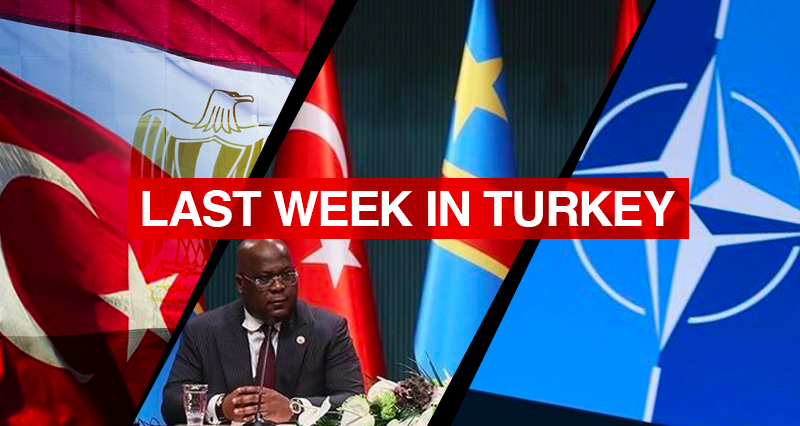


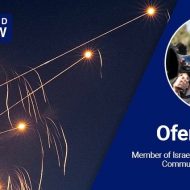
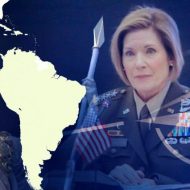
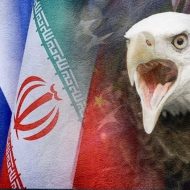
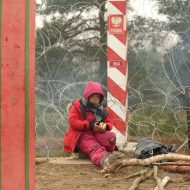
Leave a Reply